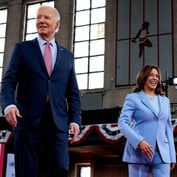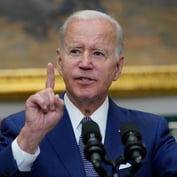By Arthur D. Postal
Through no fault of its own, the life insurance industry is finding its legislative agenda caught up in the disarray now crippling Congress.
And, worse for the industry, there is no sign that the logjam will soon end.
At the moment, Republican committee chairmen in the House and Senate are working on appropriations bills for the current year as well as attempting to show the American people that they can move to reduce the exploding budget deficit.
But, effectively, Congress is in limbo. At press time, it was waiting to see what happens to Karl Rove, the president’s key advisor, and I. Lewis Libby, Vice President Cheney’s chief of staff.
The turmoil over the President’s nomination of Harriet Miers to the Supreme Court was another factor in the disarray among Republicans before she withdrew her nomination on Oct. 27.
And they also are awaiting the fate of former House Majority Leader Tom DeLay, R-Texas. For House Republicans, the hope is that whether he is convicted, acquitted or has his indictment thrown out, that he will get the body language of his party and decide not to return as majority leader.
For Democrats, the opposite is true. They hope DeLay returns and continues to serve as a symbol for Republican disarray.
In the interim, all the hard work and respect the insurance industry is winning for how it is managing its agenda is being lost in the vacuum created by outside events.
It is a vacuum created by President Bush’s sudden inability to control the congressional agenda, and because Republicans no longer fear DeLay’s ability to retaliate if the party’s moderate and conservative wings do what they do best– disagree.
The prayer among Republicans is that an ugly fight over DeLay’s return can be avoided, and that in the event the President’s key men are implicated criminally in the effort to out a CIA undercover agent, that the President will move quickly to pull a President Clinton and get an entirely new crew to run the White House to show he is in charge.
The latter is seen as more likely to occur in the near term. The thinking is that if Rove and/or Libby is indicted, the President will use that as an excuse to bring in new blood.
One of the heads seen likely to roll is chief of staff Andrew Card, the thinking is. And two beneficiaries of such change are seen as Joshua Bolten, director of the Office of Management and Budget, and Ken Mehlman, currently chairman of the Republican National Committee.








 October 05, 2005 at 08:00 PM
October 05, 2005 at 08:00 PM










